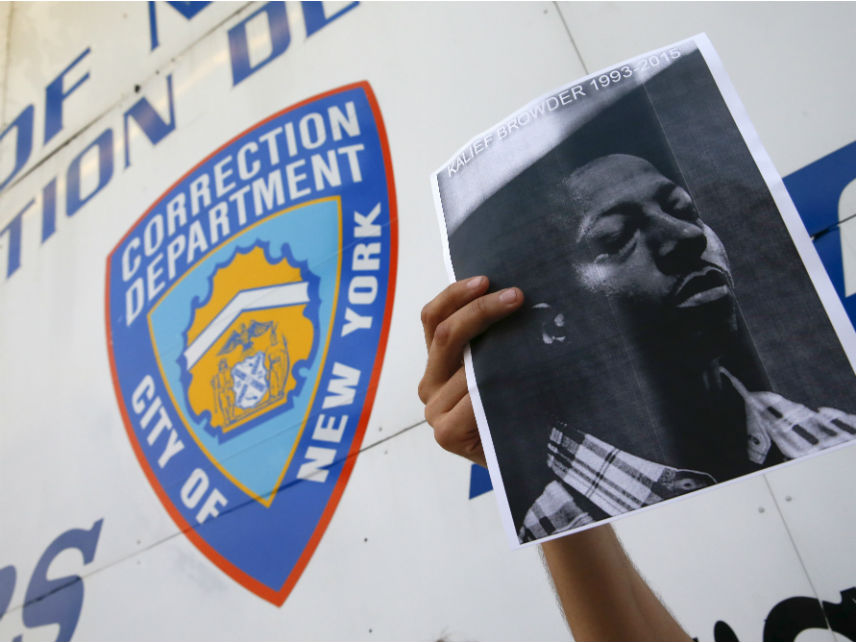New York City Reaches a $3.3 Million Settlement with Kalief Browder's Family
It has been nearly four years since the young man passed away.

New York City has reached a settlement with the family of Kalief Browder as the fourth year of his suicide approaches.
As The New Yorker's Jennifer Gonnerman previously chronicled, Browder was arrested in 2010 after someone called the police to claim that he stole a backpack. The accusation was dubious—the caller's story changed significantly while Browder was being searched. Though officers found nothing on his person, Browder was booked anyway. His bail was set at $3,000, more than his family could afford. Because he was unable to pay, Browder was taken to the dangerous prison on Rikers Island. He proceeded to spend three years there, without proper criminal proceedings.
Surveillance footage from inside the prison shows Browder being subject to inmate violence and abuse from prison guards. Gonnerman's eulogy noted that Browder spent two of his three years in prison in solitary confinement. In fact, it was there that he first began making attempts to end his life.
Browder was eventually released, but he was broken by his cruel experiences. His suicide attempts continued after his release, and he died in 2015 at age 22.
This week, a lawsuit from Browder's family against the city was settled for $3.3 million. The Wall Street Journal reports that the settlement includes money for the family's legal expenses.
The factors that led to Browder's death sparked criticisms of juvenile solitary confinement from former President Barack Obama as well as a bill by Sens. Rand Paul (R–Ky.) and Kamala Harris (D–Calif.) to combat excessive bail. Browder's story also inspired a six-part documentary series called TIME: The Kalief Browder Story, which was produced by rapper Jay-Z.
Following Browder's death, Reason's Scott Shackford reported that his story is not an anomaly. In New York City alone, the judicial backlog was so high that a suspected felon could expect to spend an average of 95 days in pretrial detention.
